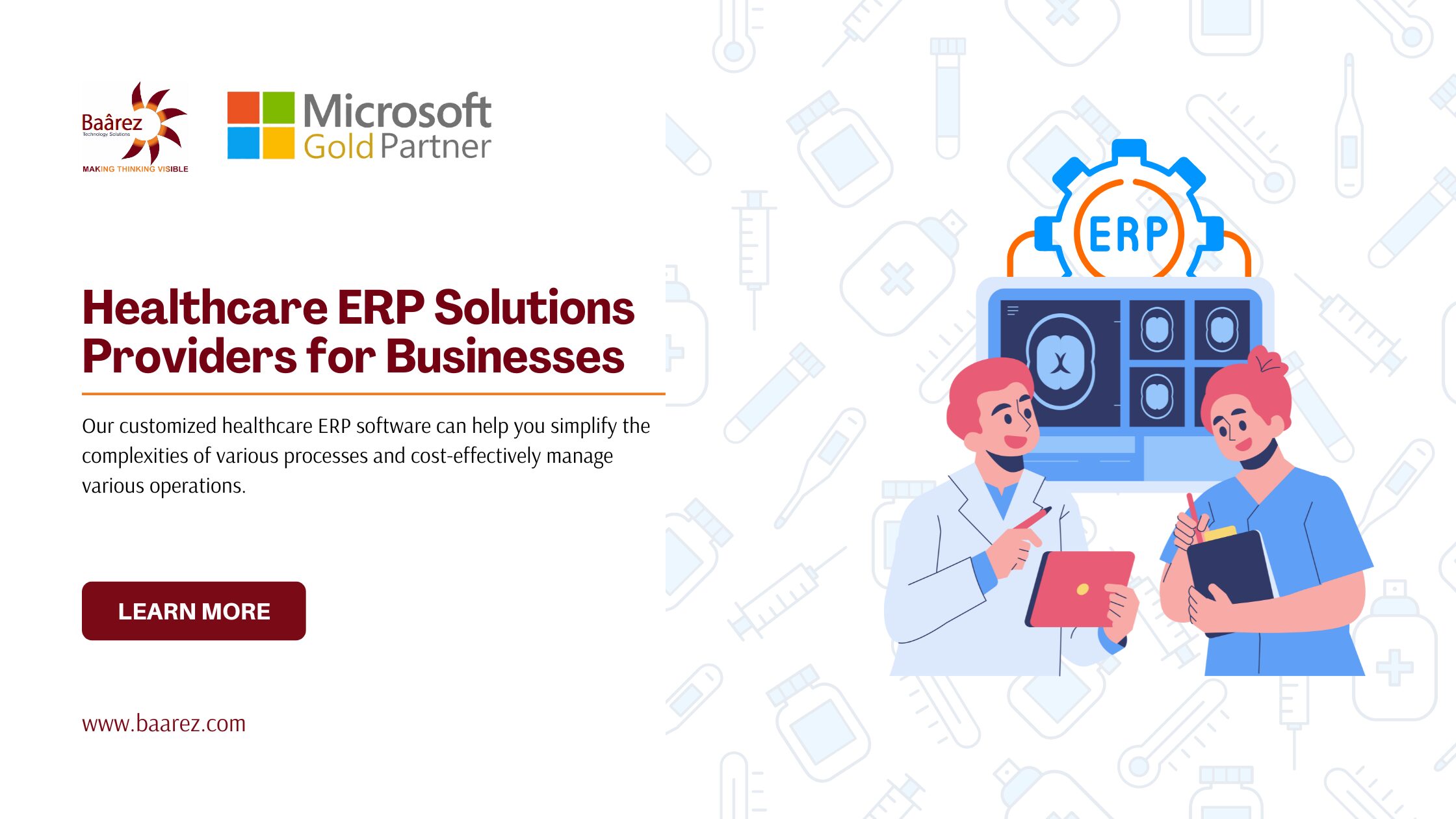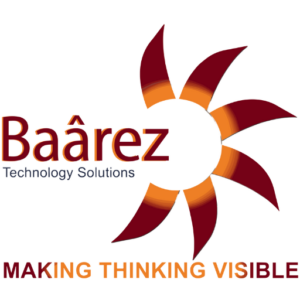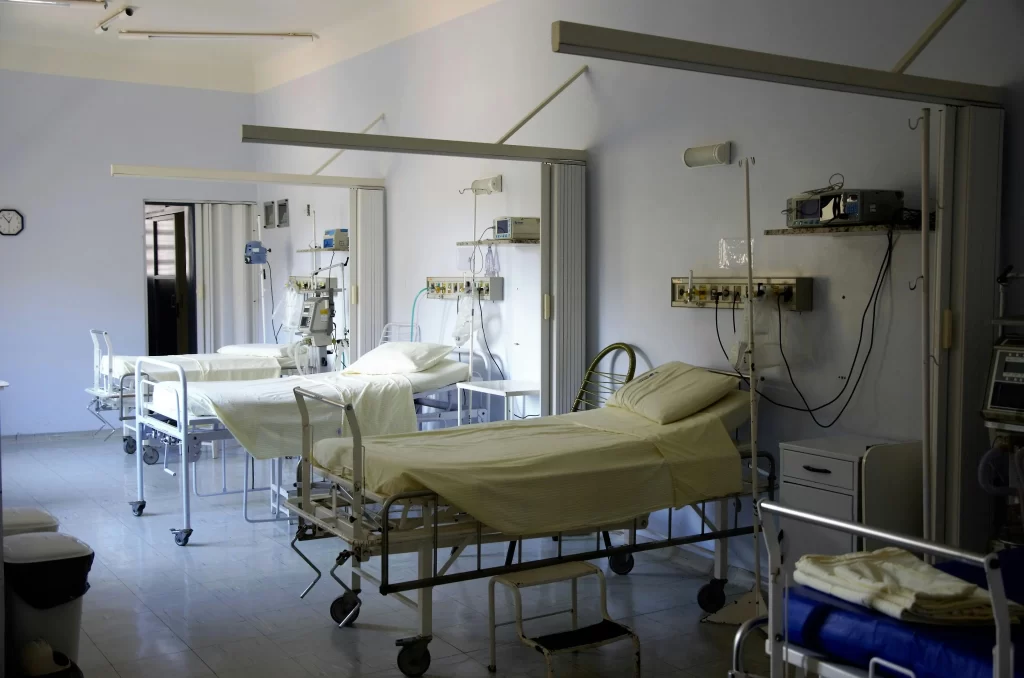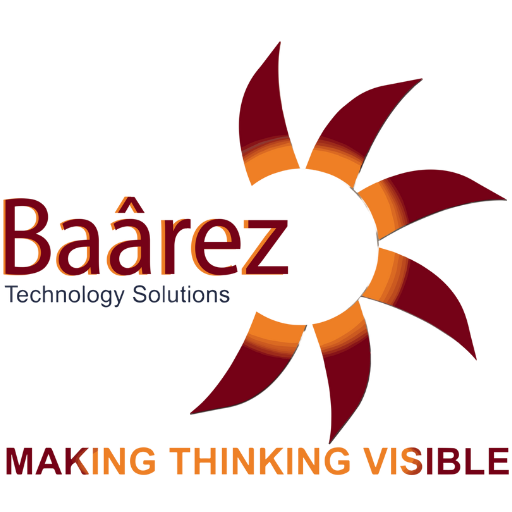
Table of Contents
ToggleHow ERP Systems are Revolutionizing Healthcare
In today’s fast-paced healthcare environment, hospitals and clinics face immense pressure to deliver high-quality patient care while managing operational efficiency. Traditional systems often fall short, leading to fragmented patient records, delayed treatments, and inefficient workflows. Enter Enterprise Resource Planning (ERP) systems, a comprehensive solution designed to streamline operations, integrate various functions, and ultimately enhance patient care. This blog explores how ERP systems, specifically those implemented by Baarez Technology Solutions, are revolutionizing the healthcare sector. We will delve into the benefits, key features, and successful case studies of ERP for healthcare, providing valuable insights into how these systems are shaping the future of medical services.
What is ERP in Healthcare?
Enterprise Resource Planning (ERP) systems are integrated software platforms that centralize data and processes across an organization. In healthcare, ERP systems consolidate patient records, billing, supply chain management, and other administrative tasks into a unified platform. This integration facilitates better data sharing, reduces errors, and improves overall efficiency. Baarez Technology Solutions specializes in tailoring ERP systems to meet the unique needs of healthcare providers, ensuring seamless integration with existing Electronic Health Records (EHR) and other critical systems. By leveraging ERP for healthcare, institutions can achieve a holistic view of their operations, leading to more informed decision-making and enhanced patient outcomes.
Benefits of ERP for Healthcare
Implementing an ERP system in healthcare offers numerous benefits. Improved patient care is a primary advantage, as ERP systems streamline patient records management and enable faster access to critical information. This leads to timely treatments and reduced waiting times. Additionally, operational efficiency is significantly enhanced through automation of administrative tasks, better inventory management, and reduced operational costs. Baarez Technology Solutions’ ERP solutions ensure regulatory compliance by facilitating easier adherence to healthcare regulations and improving data security. Overall, the adoption of healthcare ERP systems results in a more efficient, compliant, and patient-focused healthcare environment.
Key Features of Healthcare ERP Systems
Healthcare ERP systems come with a suite of features designed to improve various aspects of healthcare management. Patient management modules include scheduling, appointment management, and EHR integration, ensuring seamless patient care. Financial management features such as billing, insurance processing, and financial reporting streamline administrative processes. Effective healthcare supply chain management is achieved through inventory tracking, supplier relationship management, and procurement automation. Human resources modules handle staff scheduling, payroll, and performance management. Baarez Technology Solutions provides ERP systems with these comprehensive features, enabling healthcare providers to enhance both clinical and operational aspects of their services.
Implementing ERP in Healthcare
Successful healthcare ERP implementation requires careful planning and execution. The process begins with a needs assessment to identify specific challenges and set clear objectives. Choosing the right ERP system is crucial, and it involves evaluating different vendors and ensuring regulatory compliance. Baarez Technology Solutions guides healthcare providers through a phased implementation approach, offering staff training, data migration, and ongoing support. Overcoming challenges such as resistance to change, data security concerns, and budget constraints is vital. With expert assistance from Baarez Technology Solutions, healthcare facilities can navigate these challenges and achieve a smooth ERP implementation.
Case Studies
Baarez Technology Solutions, a leading provider of ERP consulting services, partnered with a major hospital network in the UAE to implement a comprehensive ERP system. The hospital network, consisting of three major hospitals and several clinics, faced challenges in managing patient records, billing processes, and supply chain operations. The objective was to streamline these operations, improve patient care, and ensure regulatory compliance through the deployment of an ERP system.
Background
The hospital network had been using disparate systems for various functions, resulting in fragmented data, inefficiencies, and delays. Patient records were often incomplete or inaccessible, leading to prolonged wait times and suboptimal patient care. Additionally, manual billing processes were time-consuming and prone to errors, while supply chain management suffered from poor inventory control and frequent stockouts.
Implementation Process
- Needs Assessment: Baarez Technology Solutions began with a thorough needs assessment, identifying key pain points such as fragmented patient records, inefficient billing processes, and supply chain issues.
- ERP System Selection: After evaluating several ERP vendors, the hospital network chose a solution tailored to the healthcare industry, with strong capabilities in patient management, financial management, and supply chain management.
- Phased Implementation: The ERP implementation was carried out in phases to minimize disruption. The first phase focused on integrating patient records and appointment scheduling. The second phase addressed financial management, including billing and insurance processing. The final phase targeted supply chain management, enhancing inventory tracking and procurement processes.
- Staff Training and Support: Comprehensive training programs were conducted for hospital staff to ensure smooth transition and effective use of the new system. Baarez Technology Solutions provided ongoing support to address any issues and optimize system performance.
Results
- Improved Patient Care: With the new ERP system, patient records were centralized and easily accessible, leading to faster diagnosis and treatment. Appointment scheduling became more efficient, reducing wait times and improving patient satisfaction.
- Operational Efficiency: The automation of billing processes reduced errors and streamlined financial operations. The hospital network experienced a 25% reduction in billing cycle times and a significant decrease in administrative overhead.
- Enhanced Supply Chain Management: Improved inventory tracking and procurement processes resulted in better stock control and reduced stockouts. The hospital network reported a 30% improvement in inventory turnover rates.
- Regulatory Compliance: The ERP system facilitated adherence to healthcare regulations by ensuring secure and accurate data management. The hospital network successfully passed several regulatory audits with minimal issues.
Lessons Learned
- Stakeholder Engagement: Involving key stakeholders from the outset was crucial for understanding needs and securing buy-in. Regular communication and updates helped manage expectations and foster a sense of ownership among staff.
- Phased Approach: Implementing the ERP system in phases allowed the hospital network to address issues incrementally and minimize operational disruptions.
- Continuous Support: Ongoing support and training from Baarez Technology Solutions were vital in overcoming initial challenges and optimizing the use of the ERP system.
Future Trends in Healthcare ERP
The future of healthcare ERP systems is shaped by emerging technologies and evolving industry needs. Artificial Intelligence (AI) and Machine Learning (ML) are set to revolutionize patient care through predictive analytics and automation of administrative tasks. Telemedicine integration within ERP systems is becoming increasingly important, enabling remote consultations and expanding access to care. Blockchain technology offers enhanced data security and streamlined access to patient records, addressing privacy concerns. Baarez Technology Solutions stays at the forefront of these trends, ensuring their ERP solutions incorporate the latest advancements to meet future healthcare challenges effectively.

Conclusion
ERP systems are transforming the healthcare sector by enhancing patient care and operational efficiency. Baarez Technology Solutions’ expertise in ERP consulting and implementation ensures that healthcare providers can leverage these systems to their full potential. From improved patient management to streamlined financial and supply chain operations, the benefits of healthcare ERP systems are substantial. As we look to the future, integrating AI, telemedicine, and blockchain will further revolutionize healthcare delivery. Healthcare facilities are encouraged to explore ERP solutions from Baarez Technology Solutions to stay competitive and provide the best possible care for their patients.



